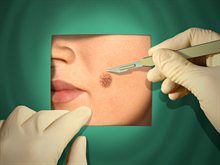Perfect People
- Dates
- Friday 30 November 2012 (09:00-16:30)
- Contact
Workshop Leaders: Jean McHale and Heather Widdows

Increasingly developed nations are becoming concerned with concepts of "perfectionism" and "perfect people”. Despite the rejection of the language of eugenics and the selection of the fittest in the mid C20th the last decade has been notable for a growing interest in, development of and indeed in some contexts growing public "acceptance" of cultures of body modification and selection of persons. Some of this may be seen as comparatively benign on first glance. "Looking better", "Looking healthier" or "10 years younger". From highlights to Botox. But concerns around the implications of such approaches, such technologies and the long term impact upon of the drive for "perfection" are increasing. Appearance and the ageing process may impact upon employment prospects. The pressure of such a perfectionist culture on the young led Queensland, Australia to legislation regulating the use of cosmetic surgery on minors. The safety of "perfectionism" technologies used for bodily enhancement has recently come under scrutiny at EU and member state level. The appearance of children with Downs Syndrome may be "corrected" by surgery. Have we moved from the amusing to the sinister and indeed dangerous? But is all this really too late? Is this something which we are able now to effectively address or regulate or is it a case of simply closing the stable door now the horse has bolted?
The Workshop will bring together philosophers, ethicists, lawyers, political scientists, health care professionals, scientists and medical sociologists. The intention is to explore interlinking themes and new research questions and to provide a basis for future projects and collaboration
The Workshop aims to explore
- Who are "perfect people"?
- How and will health technologies change perceptions of perfection?
- Is this a new debate or one where we need to engage properly with the lessons of history in order to inform future discussion/regulation?
- Is this simply a matter of personal choice?
- Should there be regulation/prohibition of surgical enhancement techniques- in general for specific groups?
- What will be the impact of the extension of perfectionism to children in the increasing demands to be allowed not only to select sex of children but also parts and traits?
- What are the challenges of a perfectionist agenda in a multi-cultural society?
- Does being beautiful make you happy and is beauty today increasingly simply surface deep?
- Is real diversity disappearing, are we becoming gradually more homogenous and if so does it matter?